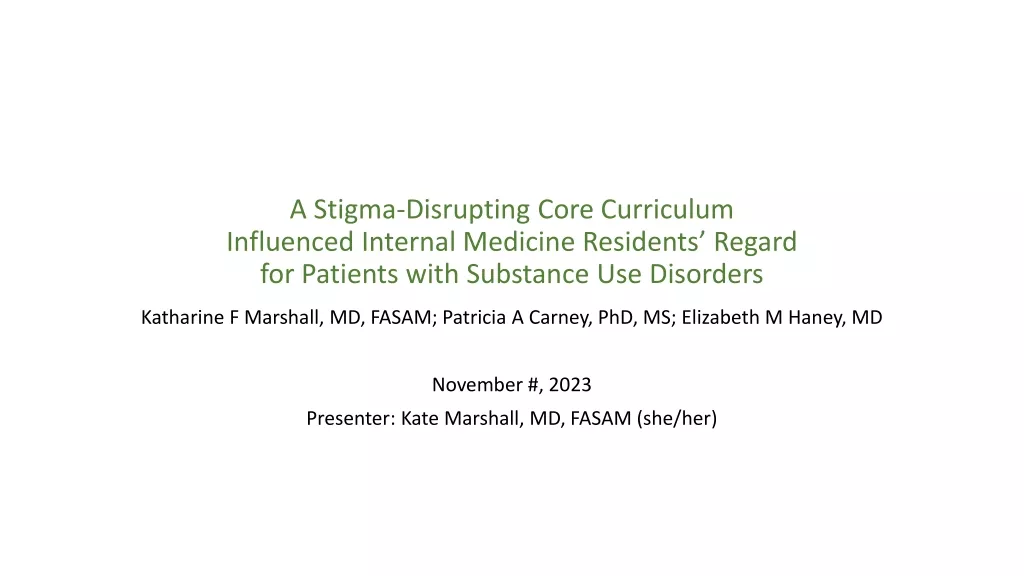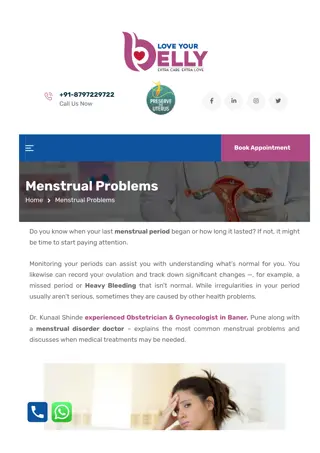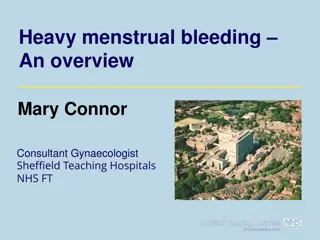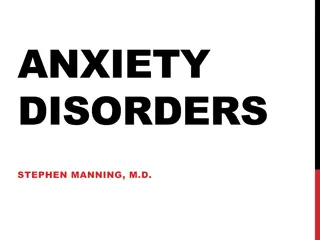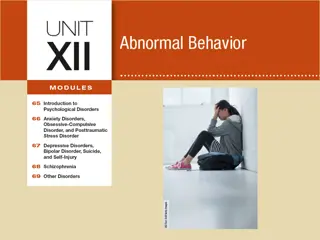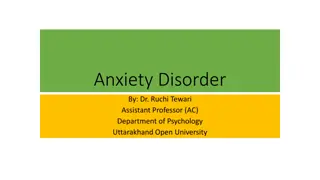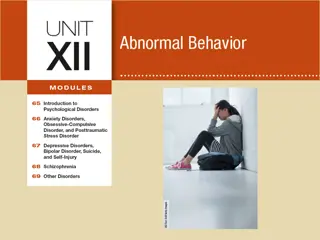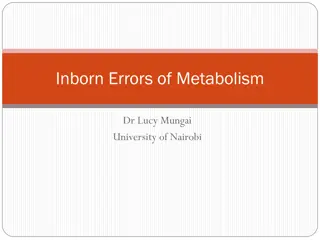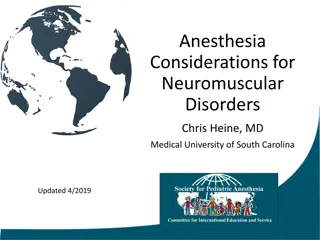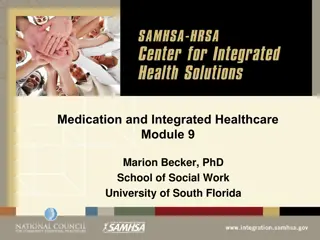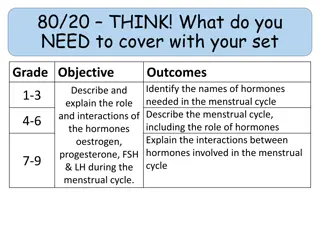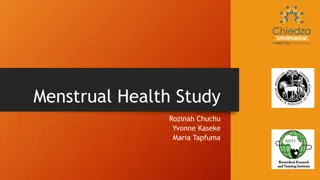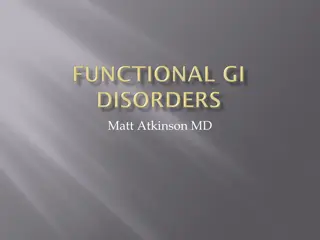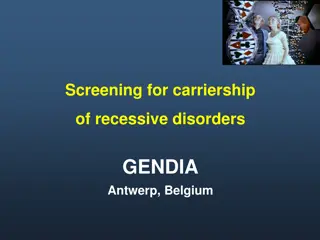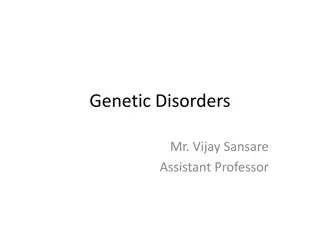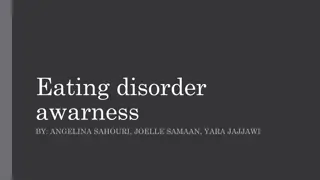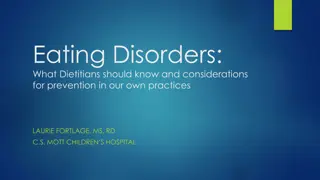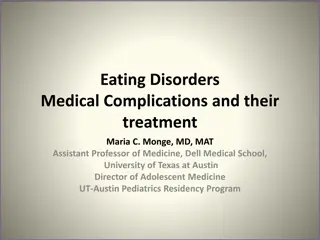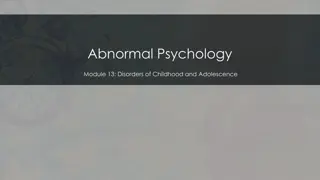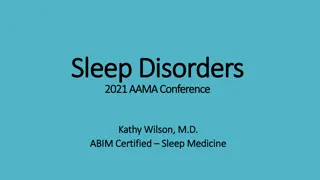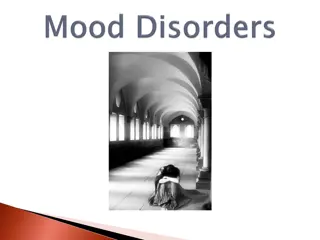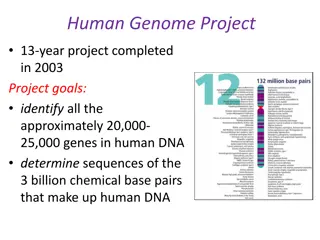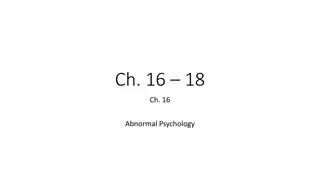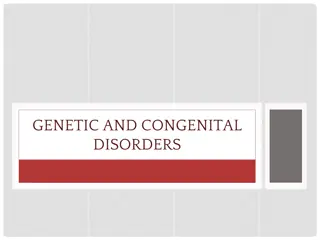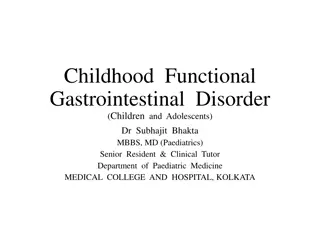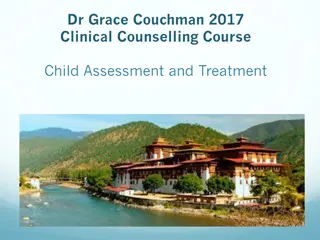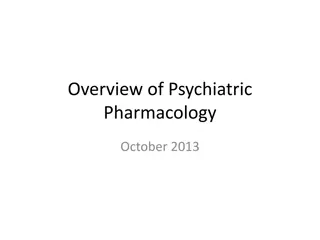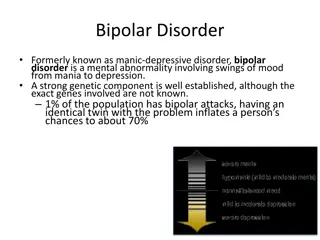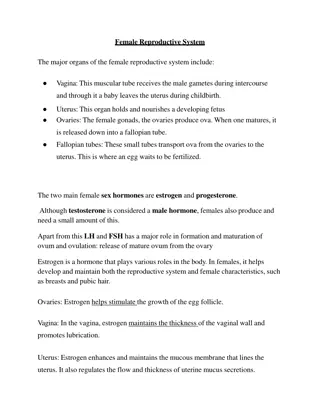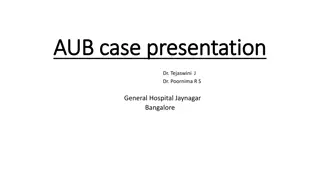Gynecological disorders
Common gynecological disorders including menstrual disorders and abnormal uterine bleeding. Find out about the nursing role in diagnosing and treating these disorders.
3 views • 22 slides
Enhancing Internal Medicine Residents' Approach to Patients with Substance Use Disorders
This study focuses on developing and implementing a stigma-disrupting curriculum to improve internal medicine residents' attitudes and knowledge regarding patients with substance use disorders. By addressing provider stigma and enhancing preparedness, the aim is to promote positive regard and increa
1 views • 27 slides
Menstrual Problems
Do you know when your last menstrual period began or how long it lasted? If not, it might be time to start paying attention.\n\n
1 views • 7 slides
Heavy Menstrual Bleeding: A Comprehensive Overview
A detailed exploration of heavy menstrual bleeding (HMB) by Consultant Gynaecologist Mary Connor, highlighting its impact on women's health and well-being. The importance of early investigations, treatments, and referrals, as well as key considerations for women with obesity or estrogen imbalances.
4 views • 34 slides
Fertility and the Menstrual Cycle in 7th Grade
Female reproductive health lesson for 7th graders covering topics such as the menstrual cycle, ovulation, fertilization, pregnancy, and menstruation. Explains the role of the uterus, ovaries, and hormones in the reproductive process. Suitable for young learners to understand basic concepts of fertil
3 views • 9 slides
Overview of Human Genetic Disorders
Human genetic disorders encompass a range of conditions, from recessive disorders like cystic fibrosis to dominant disorders such as Huntington's disease. Examples include cystic fibrosis, Huntington's disease, and sickle-cell anemia. Understanding genetic disorders involves research and awareness o
1 views • 10 slides
Anxiety Disorders in DSM-5
Anxiety disorders encompass a range of conditions, from separation anxiety to social phobia and generalized anxiety disorder. The DSM-5 has re-conceptualized these disorders, grouping OCD in its own category and moving PTSD to trauma-related disorders. Recognizing symptoms and seeking appropriate tr
1 views • 96 slides
Anxiety Disorders and Related Conditions
Explore the distinguishing features of anxiety disorders such as generalized anxiety disorder, panic disorder, and phobias, along with insights into obsessive-compulsive disorder (OCD) and posttraumatic stress disorder (PTSD). Delve into the impact of conditioning, cognition, and biology on these co
2 views • 46 slides
Overview of Anxiety and Related Disorders
Anxiety disorders, such as PTSD, panic disorders, phobias, agoraphobia, and OCD, are characterized by varying degrees of fear and distress. Anxiety is a normal response to danger, but when it becomes chronic, it can lead to debilitating conditions. PTSD occurs post-trauma, panic disorders involve in
1 views • 42 slides
Anxiety Disorders: Causes, Symptoms, and Types
Anxiety disorders are a group of mental illnesses characterized by excessive and overwhelming anxiety and fear. This article explains the normal emotion of anxiety, symptoms of anxiety disorders, types of anxiety disorders, and common causes like genetics, brain chemistry, environmental stress, and
1 views • 8 slides
Somatic Symptom Disorders, Conversion Disorders, and Dissociative Disorders
Somatic symptom disorders manifest as physical symptoms without apparent cause, while conversion disorders involve specific physical symptoms incompatible with medical conditions. Illness anxiety disorder involves interpreting normal sensations as disease symptoms. Dissociative disorders lead to a s
1 views • 41 slides
Inborn Errors of Metabolism and Metabolic Disorders
Inborn Errors of Metabolism (IEM) are genetic disorders that disrupt metabolic pathways, leading to substrate accumulation or product deficiency. These disorders can be classified based on toxic accumulation, protein metabolism, carbohydrate intolerance, lysosomal storage issues, energy production d
1 views • 29 slides
Anesthesia Considerations for Neuromuscular Disorders: Overview and Management
This informative document discusses the classification of neuromuscular disorders, focusing on muscle and muscle membrane disorders such as Muscular Dystrophy. It delves into the characteristics, pathology, and clinical presentations of different types of muscular dystrophies, including Duchenne and
0 views • 42 slides
Co-occurring Mental and Physical Health Conditions
Co-occurring mental and physical health disorders are prevalent and require an integrative multidisciplinary approach for effective assessment and treatment. This holistic approach helps address the complexity of managing multiple disorders in an integrated healthcare setting. Through a multi-direct
1 views • 37 slides
The Hormones in the Menstrual Cycle
Explore the intricate role of hormones in the menstrual cycle, including the names and functions of key hormones like oestrogen, progesterone, FSH, and LH. Learn how these hormones interact and change throughout the cycle, influencing ovulation and menstruation. Dive into activities and resources to
6 views • 19 slides
Empowering Women through Menstrual Health Management Intervention
Menstrual Health Study in CHIEDZA focuses on improving menstrual hygiene management for young women through education, product provision, and champion profiles. The intervention aims to enhance uptake and retention of MHM services by addressing facilitators and barriers, developing tracking tools, a
4 views • 6 slides
Functional GI Disorders: A Comprehensive Overview
Functional GI disorders encompass a range of conditions affecting the gastrointestinal system, such as irritable bowel syndrome and disorders of the gut-brain interaction. These disorders are characterized by no structural abnormalities but are influenced by factors like motility disturbance, viscer
1 views • 42 slides
The Menstrual Cycle: Phases and Hormonal Regulation
Menstruation is a natural process where the uterine lining sheds accompanied by bleeding in monthly cycles. The menstrual cycle consists of three phases - Follicular, Ovulatory, and Luteal - regulated by hormones like estrogen and progesterone. This cycle starts with menstruation, followed by the re
0 views • 11 slides
Are Painful Periods Sign of Good Fertility?
Learn if menstrual cramps can be an indicator of reproductive health. Stay informed about your menstrual health and fertility journey.\nURL\n\n
1 views • 9 slides
Genetic Carrier Screening for Recessive Disorders by GENDIA, Antwerp, Belgium
Explore the world of genetic carrier screening offered by GENDIA in Antwerp, Belgium. Learn about prenatal screening for various genetic disorders, including Down syndrome and severe monogenic disorders. Discover the frequency of common recessive disorders and the severity of genetic diseases. Uncov
0 views • 17 slides
Genetic Disorders and Their Impact on Health
Genetic disorders are caused by abnormalities in genes or chromosomes, leading to various health conditions. Inherited disorders can be passed down from parents to children, affecting physical makeup and processes in the body. In India, there is a high prevalence of genetic disorders, particularly i
1 views • 12 slides
Menstrual Equity for All Act - Ensuring Access to Menstrual Products on Community College Campuses
Effective January 1, 2022, Assembly Bill 367 mandates community college districts to provide free and easily accessible menstrual products in central locations on campus to address period poverty and ensure menstrual dignity for all students. The law aims to destigmatize menstruation, improve access
0 views • 6 slides
Eating Disorders: Types, Signs, Effects, and Recovery
Eating disorders are mental disorders characterized by unhealthy eating habits and can have severe physical and psychological consequences. This article explores the definition of eating disorders, signs to look out for, different types such as Anorexia Nervosa, Bulimia Nervosa, Pica, and Purging Di
0 views • 10 slides
Eating Disorders: Insights for Dietitians
Eating disorders are complex neurobiological conditions that are not merely about control or weight management. These disorders can affect individuals of all genders, body sizes, and socioeconomic backgrounds. Dietitians play a crucial role in identifying, assessing, and treating eating disorders, a
0 views • 41 slides
Eating Disorders: Medical Complications and Treatment
This presentation by Dr. Maria C. Monge covers the common eating disorders in teenage patients, potential medical complications, and the role of the medical team in treatment. It includes definitions of disorders like Anorexia Nervosa, Bulimia Nervosa, and Binge Eating Disorder according to DSM-5 cr
0 views • 60 slides
Neurodevelopmental Disorders in Childhood and Adolescence
Neurodevelopmental disorders in childhood and adolescence encompass a range of conditions including intellectual disabilities, communication disorders, autism spectrum disorder, and attention deficit/hyperactivity disorder. These disorders impact cognitive development, adaptive functioning, and comm
0 views • 30 slides
Sleep Disorders: Classification and Diagnosis
Sleep disorders encompass various conditions affecting sleep patterns and quality. They are classified into categories such as insomnia, sleep-related breathing disorders, central disorders of hypersomnolence, circadian rhythm sleep-wake disorders, parasomnias, and sleep-related movement disorders.
0 views • 32 slides
Grief and Depressive Disorders: A Comparative Analysis
Grief and depressive disorders share similarities but also have distinct differences. Grief is a universal emotional state following loss, while depressive disorders involve prolonged mood disturbances. The stages of grief include denial, anger, bargaining, depression, and acceptance, with intervent
0 views • 79 slides
Genetic Disorders and the Human Genome Project
The Human Genome Project, completed in 2003, aimed to identify all human genes and DNA sequences. Genetic disorders, like autosomal disorders and Huntington's disease, can result from mutations at different levels, affecting single genes, chromosomes, or multiple genes. Albinism and cystic fibrosis
0 views • 37 slides
Abnormal Psychology: Disorders, Symptoms, and Treatments
Explore the world of abnormal psychology through the lens of different disorders like depression, anxiety, and phobias. Learn about the definitions of abnormal behavior, DSM-V classifications, and various types of psychological disorders. Delve into the complexities of mental health conditions such
0 views • 39 slides
Overview of Classification of Psychiatric Disorders
Psychiatric disorders are illnesses with various manifestations that impact functioning due to disturbances in biological, social, genetic, and other factors. Two key classification systems, ICD-10 and DSM-5, categorize over 200 types of psychiatric illnesses. The ICD-10 includes categories like org
1 views • 18 slides
Overview of Genetic and Congenital Disorders and Their Causes
Explore the terminology, causes, characteristics, and results of genetic and congenital disorders, as well as the disorders of single-gene inheritance. Learn about autosomal dominant disorders like Marfan Syndrome and Neurofibromatosis. Discover how single-gene disorders are inherited and their impa
0 views • 24 slides
Childhood Functional Gastrointestinal Disorders
Functional Gastrointestinal Disorders (FGIDs) in children and adolescents are characterized by chronic or recurring symptoms that cannot be fully explained by current structural or biochemical tests. These disorders emphasize the role of normal development in symptom presentation and the lack of evi
0 views • 46 slides
Clinical Counselling and Treatment of Child Disorders: Assessment and Interventions
The Clinical Counselling Course by Dr. Grace Couchman in 2017 focuses on child assessment and treatment, covering various disorders such as depression, anxiety, behavior disorders, learning difficulties, autism spectrum disorders, and more. The course emphasizes tools for clinical assessment and cou
0 views • 14 slides
Improving Menstrual Health and Rights in Lesotho
Lesotho faces challenges with menstrual health, safe abortion, and child marriages. The country is advocating for free access to sanitary pads, legalizing abortion, and addressing social issues. Initiatives are in place to distribute sanitary products and educate girls. By addressing these issues, L
0 views • 11 slides
Menstrual Benefits of Halim Seeds - Sai Speciality Center
Learn how Aliv seeds can help alleviate cramps, regulate menstrual cycles, and improve overall reproductive wellness.
1 views • 10 slides
Overview of Psychiatric Pharmacology: A Comprehensive Guide from 2013
This presentation delves into the nuances of psychiatric pharmacology, exploring common psychiatric conditions, historical perspectives on medical treatments, categories of psychiatric medications, and principles of treatment. It also touches on mental illness definitions from DSM-IV-TR and DSM-V, a
0 views • 27 slides
Mental Health Disorders: Bipolar Disorder, Anxiety Disorders, & More
Exploring various mental health disorders such as Bipolar Disorder, Anxiety Disorders, Generalized Anxiety Disorder, Panic Disorder, and Phobic Disorders. Learn about their symptoms, prevalence, and impacts on individuals' lives.
0 views • 41 slides
Overview of the Female Reproductive System and Menstrual Cycle
The female reproductive system consists of organs like the vagina, uterus, ovaries, and fallopian tubes, which play vital roles in reproduction. Hormones like estrogen and progesterone regulate various processes such as ovulation, menstruation, and pregnancy. Menstruation is part of the menstrual cy
0 views • 7 slides
Comprehensive Case Presentation of a Patient with Heavy Menstrual Bleeding
Mrs. X, a 38-year-old clerk, presented with heavy menstrual bleeding lasting for 8 days in a cycle associated with fatigue and tiredness. She had a history of regular cycles but no relief with previous medical management. No other concerning symptoms reported. Menstrual and obstetric history reveale
0 views • 20 slides

